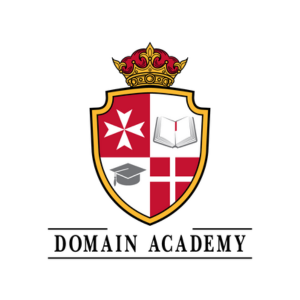Management
MBA Global
Our new MBA Global will equip you with the strategic knowledge and confidence to succeed and excel in managerial roles within the business sector. It is designed for a new generation of ambitious business professionals and graduates with an international outlook. The business world is experiencing rapid growth on an international scale and, now more than ever, managers within every industry need to be equipped with a strategy for global scalability. Throughout the course, you will develop skills and study areas valued and needed by the industry.


Sep 2024
Start Date
1.5 Years
Duration
MQF L7
Certification
Domain Academy
Course Provider
€9,850
Prerequisites
Good honours degree
Basis
Part-Time
Location
In-Person
Course Fees
€9,850
What you'll learn
The purpose of this degree and the defined pathways are:
- The advanced study of organisations, their management and the changing external context in which they operate.
- Preparation for and/or development of a career in business and management by developing skills at a professional level, or as preparation for research or further study in the area. This includes the development of positive and critical attitudes towards leadership, change and enterprise, so as to reflect the dynamism and vibrancy of the business and management environment.
- Development of the ability to apply knowledge and understanding of business and management to complex issues, both systematically and creatively, to improve business and management practice within an international context.
- Development and enhancement of a range of general transferable skills and attributes which are highly appropriate for a career in business but are not limited to this.
- Development of lifelong learning skills, including engendering enthusiasm for business and learning as part of continuing personal and professional development.
Skills you will develop
- Strategic awareness and thinking
- Confident leadership
- Presenting logical and relevant arguments
- Critical evaluation
- Innovation and the confidence to challenge traditional ways of thinking
Areas you will study:
- Strategic management
- Strategic leadership
- Change management
- Risk management
- Supply chain management and logistic
- Strategic marketing
- Business research methods and data analysis
Prerequisite
Applicants should normally hold a good honours degree (minimum upper second class) in any subject or a professional qualification deemed to be of equivalent standing. Alternatively, applicants may have significant management experience and a substantial record of achievement. Applicants meeting these criteria may not have previously studied at university.
Target Group
It is designed for a new generation of ambitious business professionals and graduates with an international outlook. The business world is experiencing rapid growth on an international scale and, now more than ever, managers within every industry need to be equipped with a strategy for global scalability.
How will you learn
This programme is delivered with a flexible classroom-based method, through a variety of course materials, case studies, discussions, presentations, enquiry-based learning and problem-solving activities. We provide you with key reading and research activities, and you will make the most of our own teaching portal.
Where you will learn
Lessons will be held in class in our premises at Domain Building, 102/104, Constitution Street, Mosta.
Course Modules
Leaders and managers at all levels of an organisation have important roles to play in delivering organisational change. Building on an understanding and appreciation of contemporary and seminal theories, concepts and models, learners will examine the role of leaders and managers as strategic agents for change where context, change types and change choices are key considerations.
Learners will explore different perspectives on strategic change where an appreciation of the relationships between organisational culture, power and internal politics, and organisational learning. Understanding theses different perspectives will enable learners to explore, in greater depth, how strategic change management is applied in practice.
Once learners are able to examine the internal and external environments of organisations and how these influence organisational change, they will be in a position to design a change transition strategy where the conditions for change are effectively enabled. People can be both champions of, and resistors to change. As such, how they are managed is key to the success or otherwise of a change initiative. Learners will explore the role of leaders, managers and the human resources team as tools to engage with employees and establish the conditions which will facilitate a successful change and deliver required performance outcomes.
Marketing is the activity, set of institutions, and processes for creating, communicating, delivering, and exchanging offerings that have value for customers, clients, partners, and society at large. Marketing is therefore a critical organisational function. An organisation’s strategic position, and the positioning of its products and services, depends on creating and implementing intelligent and well-informed strategic marketing plans.
Marketing management seeks to get the business to produce what the customer wants and align all marketing activities to meet customer needs. This unit explores the role of marketing management in setting marketing goals, applying business models to establish a marketing strategy and utilising marketing instruments that contribute towards an organisational approach to marketing.
In order to remain competitive, it is important that organisations focus on establishing, developing and adjusting their strategic marketing plans.
A strategic marketing strategy combines product development, promotion, distribution, pricing, relationship management and other elements of marketing. The strategy identifies an organisation’s strategic marketing goals, and explains how they will be achieved within a designated timeframe.
Learners will investigate how marketing plans are designed to contribute towards an organisation’s mission and strategic objectives. They will consider the management decisions that have to be taken when implementing different elements of the marketing mix (product, price, people and place) and how marketing plans can be monitored and controlled to maximise the benefits to the organisation and its stakeholders.
The goal of strategy is to place an organisation in a sustainable position supported by adequate resources. One of the key functions of strategic managers is to make long-term decisions that will contribute towards the achievement of an organisation’s strategic objectives. Strategic managers rely on both quantitative and qualitative management information to ensure that the decisions they take are robust and take account of the potential benefits and risks to the organisation.
Strategic decision-makers will have acquired specialist skills and knowledge that will be linked to organisational functions. A team of strategic managers, therefore, could include specialists in areas such as finance, marketing, human resources and digital technology.
Strategic leaders will need to understand, interpret and make use of financial data and other information, whatever their specialist skills and knowledge area. Financial data is processed as part of an organisation’s management information system (MIS). Strategic managers need to be able to apply financial techniques and tools to analyse the organisation’s management information, and to make firm decisions for different organisational reasons.
This unit focuses on the financial data and management information that strategic manager’s use when making financial decisions. These decisions will be about the planning and allocation of resources based on the financial models and financial statements prepared and presented by the organisation’s management accountants and financial accountants.
Successful completion of this unit will enable learners to analyse these financial models and financial statements to assess and evaluate an organisation’s financial performance, determine the reasons for under performance, and set challenging financial performance targets in relation to revenue, costs, liquidity, financial returns, efficiency and overall profitability. Achievement of these targets will enable an organisation to improve its position in a competitive market and meet the needs and interests of its stakeholders.
Reflecting how managers need to be able to conduct business research in a systematic and objective manner so they can assess new business opportunities or potential future strategies. This module prepares you to apply your dissertation or corporate placement project in an organisational or industry context, and to undertake management interventions in the workplace. It brings your knowledge of your own area of professional practice together with the skills to investigate issues of professional concern. You will pursue research interests, address workplace problems and report on them in a manner consistent with the demands of masters level study.
Reflecting how managers need to be able to conduct business research in a systematic and objective manner so they can assess new business opportunities or potential future strategies. This module prepares you to apply your dissertation or corporate placement project in an organisational or industry context, and to undertake management interventions in the workplace. It brings your knowledge of your own area of professional practice together with the skills to investigate issues of professional concern. You will pursue research interests, address workplace problems and report on them in a manner consistent with the demands of masters level study.
Taking an in-depth look at the increasing need for managing the global supply chain effectively. This aspect of an organisation is seen as a 'strategic asset' which can improve efficiency, customer satisfaction and financial results. As a consequence, managing the supply chain is key in terms of how an organisation performs to meet its goals and strategy.
During the programme, you will also attend two support modules to develop your personal business skills and enhance your career coaching and mentoring skills.
A dissertation is a major piece of independently researched work, providing an opportunity to carry out an in-depth investigation of a management problem or issue. This will normally have a strategic dimension which addresses organisational issues and provides a process for solving research related problems. Based on an identified problem, learners find answers to research objectives by critiquing literature, analysing methodologies, synthesising primary and/or data, and analysing results, taking a critical perspective of their role in the research. If the collection of primary data is prohibitive, at the discretion of the programme leader, desk research may be allowed to be undertaken.
The module builds on the knowledge and skills within the Business Research Methods and Data Analysis module, in shaping students into becoming independent thinkers. The module provides an opportunity for students interested in specialising in any business related area to explore an in-depth topic relevant to their own context. It also provides the opportunity for you to reflect on the research experience and use what you have learned to guide your future development via a reflective statement and development plan.
Module learning outcomes
On successful completion of the module, you will be able to:
- Critically evaluate, with appropriate academic rigour, a business or management research problem or issue
- Conduct a research methodology that investigates a business problem or issue, reviews pertinent literature, analyses primary and/or secondary data to an appropriate depth and demonstrates strategic awareness within a chosen business related discipline
- Reflect on the process of undertaking a significant piece of independent research
Module content
The dissertation represents a major learning experience for students, providing an opportunity to pursue in considerable depth and with suitable academic rigour a specific area of management and/or strategy, building on the study of relevant concepts, models and paradigms. Each research project will be supervised by a specialised research supervisor. At the beginning, and as part of this module, a dissertation topic and research objectives will be individually negotiated and agreed. This initial collaboration with the supervisor will demonstrate that the proposed research and objectives can be achieved. Students will also have to complete an ethical approval form that meets the University of Derby's ethics guidelines. The final work will comprise a dissertation or action-based study, a reflective statement and development plan. This whole process will normally be independently assessed by two tutors, one of whom will be the Dissertation Supervisor.
Course Provider
Forming part of Domain Group, Domain Academy is a licensed Further and Higher Education Institution which, since its inception, has consistently pursued excellence. Its primary objective is to equip both local and international students with the necessary knowledge and skills to excel in their chosen fields of study and research, thereby enabling them to achieve their personal and societal aspirations.
Our programme offerings encompass diverse areas such as Business Management, Information Technology, Hospitality Management, Health & Social Care, Banking & Finance, and Linguistics.
In addition to our own accredited programs (MFHEA), we are proud of the programmes that we offer through our partnerships with renowned British institutions such as the University of Derby, Pearson Education, and Qualification.
Driven by a student centred approach and its commitment to individualised education, Domain Academy is dedicated to assisting students throughout their academic journey, from registration to graduation and beyond.
Submit interest in course
Please Login Before Accessing This Form.

